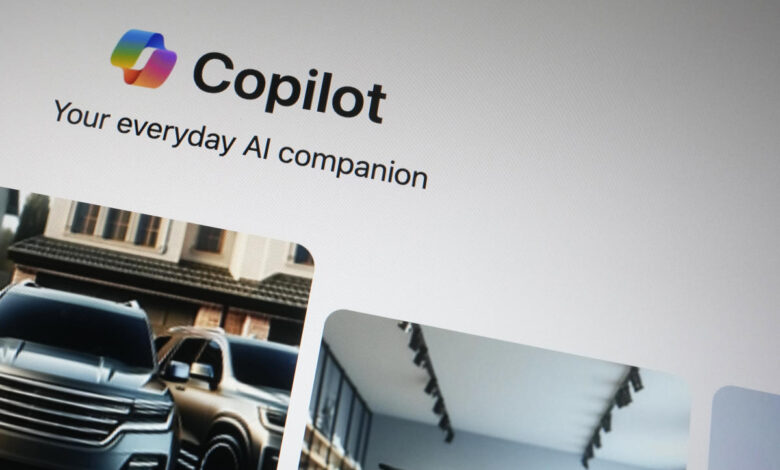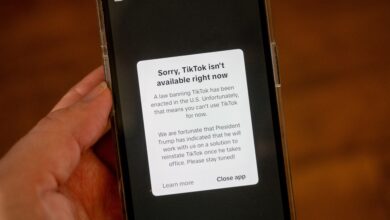Microsoft unveils Copilot+ PCs with generative AI capabilities baked in

We’ve been hearing rumblings for months now that Microsoft was working on so-called “AI PCs.” At a pre-Build event, the company spelled out its vision for AI PCs.
Microsoft is calling its version Copilot+ PCs, which CEO Satya Nadella described as a “new class of Windows PCs.” These include hardware designed to handle more generative AI Copilot processes locally, rather than relying on the cloud. That requires a chipset with a neural processing unit (NPU) and manufacturers such as Qualcomm have been laying the groundwork with chips like the Snapdragon X Elite.
Microsoft is taking a partner-first approach to making Copilot+ PCs. Along with chipmakers like AMD, Intel and Qualcomm, major OEMs including Acer, ASUS, Dell, HP and Lenovo are on board.
Yusuf Mehdi, Microsoft EVP and consumer chief marketing officer said during the event that the company has completely reimagined what a Windows PC. He claimed that Copilot+ PCs are the most powerful PCs ever (we’ll need to see if that assertion holds up in real-world testing). Despite that, Mehdi said, the first generation of laptops are “unbelievably thin, light and beautiful.”
Other AI PCs on the market deliver 10 TOPs (tera operations per second). To be dubbed a Copilot+ PC, a system will need to deliver at least 40 TOPs of NPU performance and have at least 16GB of RAM and 256GB of storage. Qualcomm claims the Snapdragon X Elite delivers up to 75 TOPs overall. But the pure specs matter less than what Microsoft is able to actually do with the hardware.
Mehdi also suggested Copilot+ PCs are 58 percent faster than M3-powered MacBook Air (though it’s worth noting Apple has more powerful M3 chips in its laptops already and M4 chips on the way to them very soon). The company suggested that Copilot+ laptops will offer up to 22 hours of battery life while playing videos locally and up to 18 hours while browsing the web.
To help make all of this happen, the Windows Copilot Runtime has more than 40 AI models that are part of a new Windows 11 layer. They’re said to be deeply integrated into Windows to help them more efficiently access hardware and to power more robust privacy and security options. The models can work across any app, Microsoft says.
As far as the Windows features go, one aspect of Copilot+ PCs is something that’s been rumored for a while. It’s called Recall and you can think of it as a more advanced version of the Timeline feature from Windows 10. You’ll be able to use natural language prompts to get your PC to resurface information based on what you remember about it. You’ll be able to scroll through apps, documents and messages on an explorable timeline.
According to Mehdi, Microsoft built Recall with responsible AI standards in mind. Data from it will stay on your PC and it won’t be used to train Microsoft’s AI models.
Elsewhere, you’ll be able to restore old snaps in Windows Photos using a tool called Super Resolution. In addition, the app will offer an option to tell a story based on your photos with the help of an AI narrator.
There’s also a new Copilot app that you can use as a standalone window, sidebar or in full screen. You’ll be able to drag and drop elements into Copilot from elsewhere in Windows. Thanks to the new Copilot key on keyboards, you’ll be able to fire up the app with the touch of a physical button. Copilot will eventually be able to let you adjust Windows settings too.
The Copilot+ PC is the natural progression of something we’ve seen in flagship Android phones over the last couple of years. The most recent Google Pixel devices, for instance, handle many generative AI processes on-device by tapping into the power of the company’s Tensor chips.
Meanwhile, Apple is largely expected to move into the generative AI space in a major way at its Worldwide Developers Conference next month. The M4 chip that recently debuted in the new iPad Pro is said to be capable of powering GAI experiences and that chipset should be coming to Macs later this year. Apple’s also said to be working on a deal with OpenAI, perhaps to bring its generative AI tech to Siri.
Developing…
Catch up on all the news from the Microsoft Surface and AI event right here!



